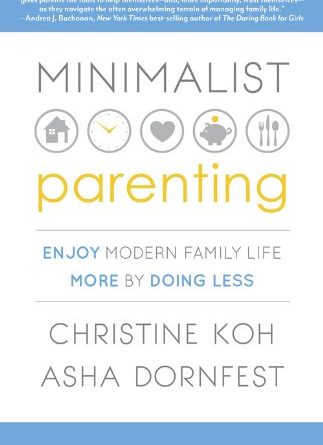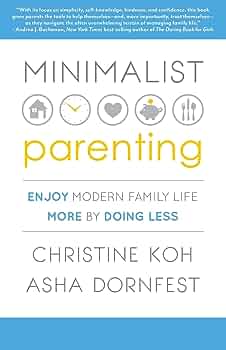
Welcome to Nelly’s Life, where the transformative power of minimalist parenting is celebrated. As a mother of three daughters and a dedicated training nutritionist, I have experienced firsthand the challenges of juggling a busy life. But through my journey, I have discovered the profound changes that minimalism and veganism can bring. On NellysLife.com, you’ll find personal stories, practical advice, and thought-provoking insights on decluttering, simplifying life, and embracing a plant-based lifestyle. Join me on this transformative adventure and let Nelly’s Life be your guide towards a life of purpose, simplicity, and well-being.
Table of Contents
The Benefits of Minimalist Parenting
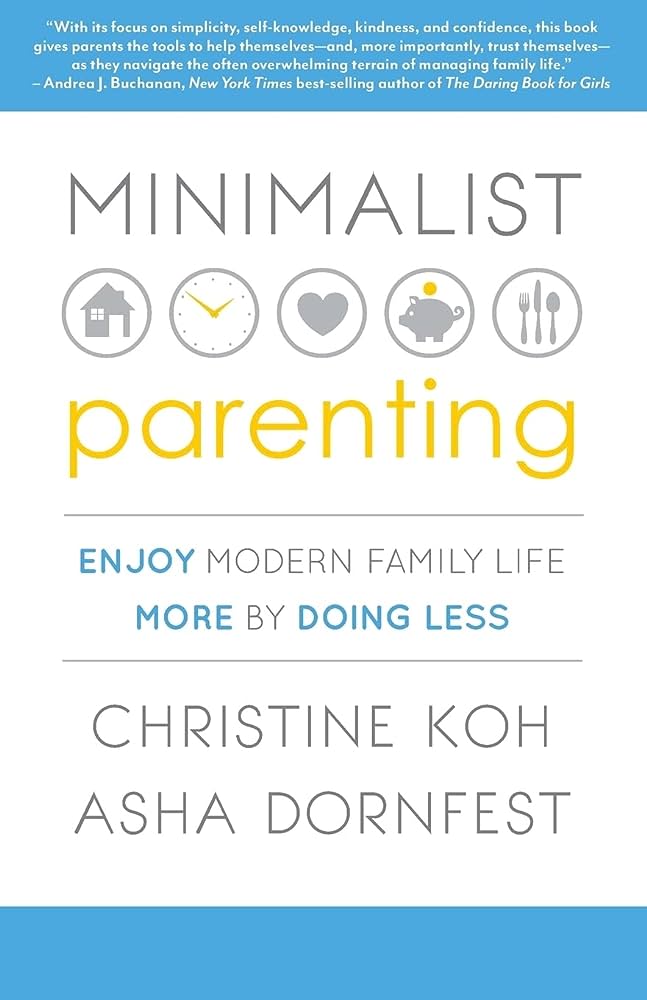
Simplifies Your Life
As a parent, life can often feel overwhelming and chaotic. The constant juggling of responsibilities, commitments, and the endless accumulation of stuff can leave you feeling stressed and stretched thin. This is where minimalist parenting can truly be a game-changer.
By embracing minimalism, you can simplify your life and create a sense of calm and order. Minimalist parenting is about prioritizing what truly matters, focusing on quality over quantity, and letting go of the excess. By decluttering your home and your schedule, you create space for what is truly important – meaningful connections, experiences, and time spent with your children.
By letting go of the pressure to constantly acquire more, you can free up time and energy to focus on the things that truly bring joy and fulfillment to your life as a parent. Minimalism allows you to streamline your daily routines, reduce decision fatigue, and create a calm and peaceful environment for both you and your child.
Reduces Stress and Overwhelm
One of the biggest benefits of minimalist parenting is the reduction in stress and overwhelm. When your life is cluttered and chaotic, it can feel like you are always running on a never-ending hamster wheel, trying to keep up with the demands of parenting.
By consciously choosing to simplify, you can create a more peaceful and balanced environment for yourself and your child. Minimalism encourages you to let go of the unnecessary and focus on the essential, helping you to prioritize your time and energy.
With fewer physical possessions and commitments, you can experience a greater sense of calm and clarity. A minimalist home is a clutter-free home, which can have a profound impact on your mental and emotional well-being. It allows you to create a space that is conducive to relaxation, creativity, and quality time with your child.
Creating a Minimalist Environment for Your Child
Decluttering Your Home
One of the first steps in creating a minimalist environment for your child is decluttering your home. Start by going through each room and getting rid of anything that no longer serves a purpose or brings joy. Donate or sell items that are in good condition, and responsibly dispose of any items that are no longer usable.
By reducing the number of toys, clothes, and other belongings, you can create a more organized and clutter-free space for your child to thrive in. Minimalist parenting encourages quality over quantity, so focus on keeping only the toys, clothes, and items that are truly loved and used regularly.
Organizing Your Child’s Spaces
Once you have decluttered your home, it’s time to focus on organizing your child’s spaces. A minimalist approach to organization is all about simplicity and functionality. Invest in storage solutions that are easy for your child to use and encourage them to take responsibility for keeping their spaces tidy.
Create designated areas for different activities, such as a reading nook, an art station, and a play area. By organizing your child’s spaces in a thoughtful and intentional way, you can make it easier for them to engage in activities independently and develop a sense of responsibility and ownership.
Minimalist Parenting Techniques
Setting Clear Boundaries
Setting clear boundaries is an essential aspect of minimalist parenting. By establishing consistent rules and expectations, you provide your child with a sense of structure and stability. This helps them understand what is expected of them and allows them to develop self-discipline and responsibility.
Boundaries can be set in various areas of your child’s life, such as screen time, mealtime, and bedtime routines. By setting limits and sticking to them, you teach your child the importance of self-control and moderation.
Encouraging Independence
Another key aspect of minimalist parenting is encouraging independence. By fostering a sense of self-reliance and autonomy in your child, you empower them to take charge of their own lives and make decisions for themselves.
Encourage your child to take on age-appropriate tasks and responsibilities, such as tidying up their toys, preparing their own snacks, or choosing their own clothes. This not only helps them develop valuable life skills but also boosts their self-confidence and self-esteem.

Minimalist Parenting and Emotional Well-being
Fostering Emotional Connection
Minimalist parenting recognizes the importance of fostering emotional connection and nurturing strong relationships with your child. By focusing on quality time and meaningful interactions, you can create a deep and lasting bond with your child.
Make it a priority to spend uninterrupted time with your child, free from distractions and external pressures. Engage in activities that allow for open communication and emotional connection, such as reading together, having regular family meals, or engaging in creative projects.
By being fully present and actively listening to your child, you show them that they are valued and loved. This helps build their emotional intelligence and strengthens their sense of security and belonging.
Promoting Quality Time
In our fast-paced and busy lives, it can be easy to overlook the importance of quality time with our children. Minimalist parenting encourages us to slow down, simplify our schedules, and prioritize dedicated time for our children.
By intentionally carving out time for activities that you and your child enjoy, you create opportunities for bonding and creating lasting memories. It could be as simple as going for a nature walk, having a picnic in the park, or taking a day trip to explore a new place together.
Making quality time a priority not only strengthens your relationship with your child but also allows for open communication, the development of shared interests, and a deeper understanding of each other.
Minimalist Parenting and Sustainable Living
Reducing Environmental Impact
Minimalist parenting goes hand in hand with sustainable living. By embracing a minimalist lifestyle, you inherently reduce your environmental impact by consuming less and wasting less.
When it comes to parenting, there are many ways in which you can make more sustainable choices. For example, opt for eco-friendly and non-toxic baby products, choose cloth diapers instead of disposables, and invest in high-quality, durable items that can be passed down or repurposed.
Encourage your child to be mindful of their consumption habits and teach them about the importance of reducing waste and conserving resources. By modeling sustainable behavior and making conscious choices, you instill in your child a sense of environmental responsibility and stewardship.
Teaching Values of Sustainability
Minimalist parenting provides an excellent opportunity to teach your child about the values of sustainability and the importance of caring for the planet. By involving them in daily habits and activities that promote sustainability, you can instill in them a lifelong commitment to environmental stewardship.
Engage your child in activities such as recycling, composting, gardening, and reducing water and energy consumption. Teach them about the impact of their choices and actions on the environment and encourage them to make conscious decisions that contribute to a more sustainable future.
By instilling these values from a young age, you are equipping your child with the knowledge and mindset needed to be a responsible global citizen.
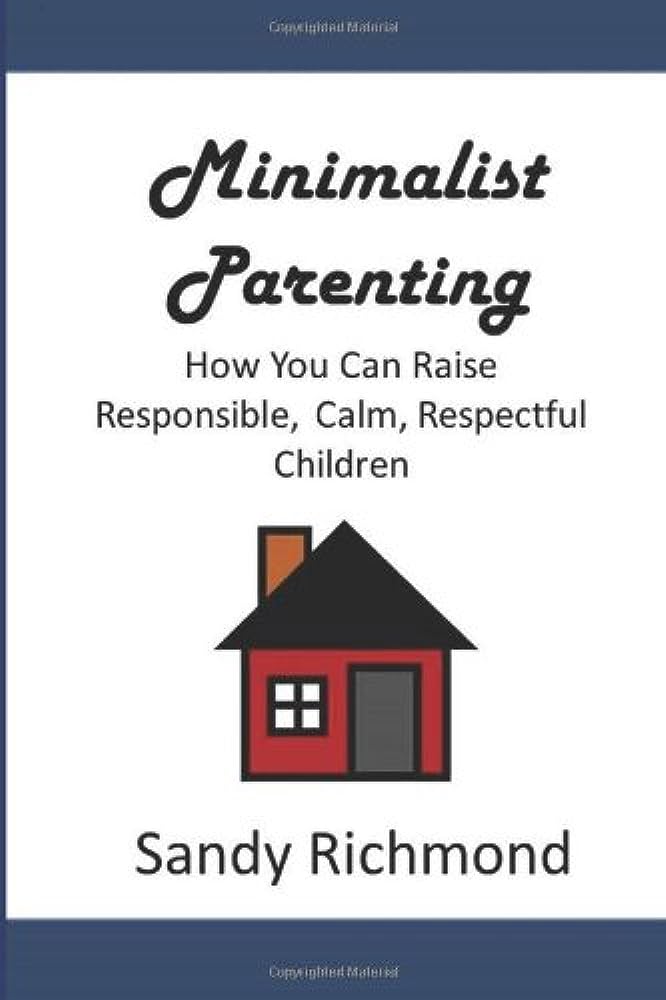
The Role of Minimalist Parenting in Children’s Development
Building Resilience
Minimalist parenting can play a significant role in building resilience in children. By teaching them to adapt, problem-solve, and manage adversity, you help them develop the skills and mindset needed to navigate the challenges of life.
By encouraging your child to think creatively and find solutions with the resources they have, you foster their resilience and resourcefulness. Minimalist parenting teaches children that happiness and fulfillment come from within, not from external possessions or circumstances.
By valuing experiences over material possessions, you show your child that they have the power to create their own happiness and find joy in simple and meaningful moments.
Enhancing Creativity
One of the unexpected benefits of minimalist parenting is the enhancement of creativity in children. When children have fewer toys and gadgets, they are often forced to use their imagination and creativity to entertain themselves.
Minimalist parenting encourages open-ended play and creative problem-solving. By providing your child with a few quality toys that inspire creativity, such as building blocks, art supplies, or nature-inspired materials, you foster their imagination and allow them to explore and express themselves freely.
Creating a minimalist environment for your child also eliminates distractions and stimulation overload, allowing them to focus and engage more deeply in creative activities.
Overcoming Challenges as a Minimalist Parent
Dealing with Peer Pressure
As a minimalist parent, you may face challenges when it comes to dealing with peer pressure. In a society that often equates success and happiness with material possessions, it can be challenging to go against the norm and embrace a simpler lifestyle.
It’s essential to remember that minimalist parenting is a personal choice that aligns with your values and priorities as a family. Be confident in your decision and focus on the benefits you and your child are experiencing. Surround yourself with like-minded individuals or seek support through communities and online forums of minimalist parents who can provide encouragement and advice.
When it comes to dealing with peer pressure from other parents or children, explain your values and choices in a positive and non-judgmental way. Encourage open conversation and understanding, and let others see the positive impact minimalism has had on your life and your child’s well-being.
Navigating Consumerism
Consumerism is deeply ingrained in our society, and navigating it as a minimalist parent can be challenging. Minimalist parenting challenges the idea that more is always better and encourages intentional consumption based on need and value.
Teaching your child about the negative impacts of consumerism, such as overconsumption, waste, and the depletion of natural resources, can help them develop a critical mindset and make conscious choices when it comes to their own consumption habits.
Engage in open discussions with your child about advertising, marketing tactics, and the concept of mindful consumption. Encourage them to think critically about their wants versus their needs and discuss alternative ways of finding joy and fulfillment beyond material possessions.
By equipping your child with the knowledge and tools to navigate consumerism, you empower them to make choices that align with their values and prioritize experiences over material possessions.
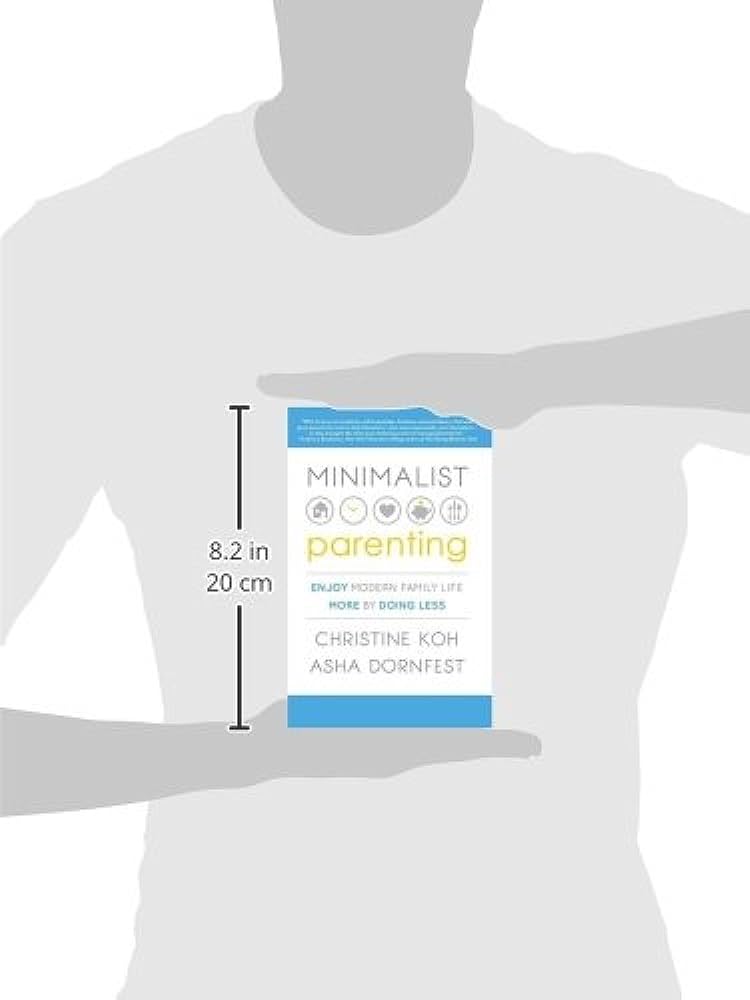
Minimalist Parenting in the Digital Age
Balancing Screen Time
In today’s digital age, balancing screen time is a challenge that many parents face. As a minimalist parent, it’s important to foster a healthy relationship with technology and ensure that it does not dominate your child’s life.
Set clear boundaries and limits when it comes to screen time and prioritize activities that promote engagement, creativity, and face-to-face interactions. Encourage your child to participate in a variety of offline activities, such as outdoor play, reading, arts and crafts, and other hobbies that stimulate their imagination and physical well-being.
Model healthy technology habits by limiting your own screen time and being present and engaged when interacting with your child. Create tech-free zones and times, such as mealtime or before bedtime, to encourage quality interactions and connection.
Mindful Technology Use
Minimalist parenting emphasizes mindfulness and intentionality in all aspects of life, including technology use. Teach your child about the importance of being present and mindful when using technology and encourage them to use it as a tool for learning, creativity, and connection.
Encourage your child to critically evaluate the content they consume and engage with online. Discuss online safety and responsible digital citizenship, and teach them the value of privacy and maintaining a healthy online presence.
By approaching technology use with mindfulness and intention, you can help your child develop a healthy relationship with technology and use it as a tool to enhance their lives rather than consuming it mindlessly.
Minimalist Parenting for Working Parents
Streamlining Daily Routines
For working parents, time can often feel like a scarce resource. Minimalist parenting can provide a way to streamline daily routines and make the most of the time you have with your child.
Identify areas in your daily routine that can be simplified or made more efficient. This could include planning meals and snacks in advance, creating a designated spot for backpacks and essentials, and establishing clear morning and bedtime routines.
By minimizing decision fatigue and creating a predictable and organized routine, you can reduce stress and create more quality time for meaningful interactions with your child.
Finding Work-Life Balance
One of the challenges working parents face is finding a balance between their professional responsibilities and their role as a parent. Minimalist parenting can help you prioritize and align your time and energy with what truly matters.
Prioritize your child and family in your schedule by setting clear boundaries between work and personal time. Create designated time blocks for family activities and ensure that they are non-negotiable.
Delegate and outsource tasks that are not essential or do not bring you joy, allowing you to free up more time and energy for your child. Embrace the concept of “enough” and resist the pressure to constantly strive for more.
By embracing a minimalist mindset in all areas of your life, you can work towards achieving a more harmonious and balanced work-life integration.

Minimalist Parenting and Self-Care
Prioritizing Your Own Well-being
Self-care is an essential aspect of minimalist parenting. As a parent, it’s important to prioritize your own well-being and take care of yourself physically, mentally, and emotionally.
Make self-care a non-negotiable part of your daily routine. This could include activities such as exercise, meditation, journaling, reading, or spending time in nature. Prioritize activities that bring you joy and nourish your soul.
Delegate and ask for help when needed. Recognize that you cannot do it all and that it’s okay to seek support from friends, family, or childcare providers. By taking care of yourself, you are better equipped to care for your child and show up as the best version of yourself.
Practicing Mindfulness and Self-Reflection
Mindfulness and self-reflection are integral to minimalist parenting. By cultivating mindfulness, you become more present and attuned to yourself and your child’s needs. This allows you to respond to challenges with greater clarity and compassion.
Take time to reflect on your parenting values, goals, and intentions. Regularly assess your routines, habits, and choices to ensure that they align with your vision of minimalist parenting.
Practicing gratitude and embracing a positive mindset can also contribute to your overall well-being as a parent. Focus on the things you are grateful for in your life and celebrate the small victories and moments of joy that come with minimalist parenting.
By embracing a mindful and reflective approach to parenting, you can create a nurturing and supportive environment for both yourself and your child.
In conclusion, minimalist parenting offers numerous benefits that can enhance your life as a parent and your child’s well-being. By simplifying your life, reducing stress and overwhelm, creating a minimalist environment, and practicing minimalist parenting techniques, you can foster a strong emotional connection, promote sustainable living, and support your child’s development.
While there may be challenges to overcome, such as dealing with peer pressure or navigating consumerism, the rewards of minimalist parenting are well worth the effort. By embracing a mindful approach, finding balance, and prioritizing your self-care, you can embark on a transformative journey that leads to a more intentional, fulfilled, and cherished life for both you and your child.




